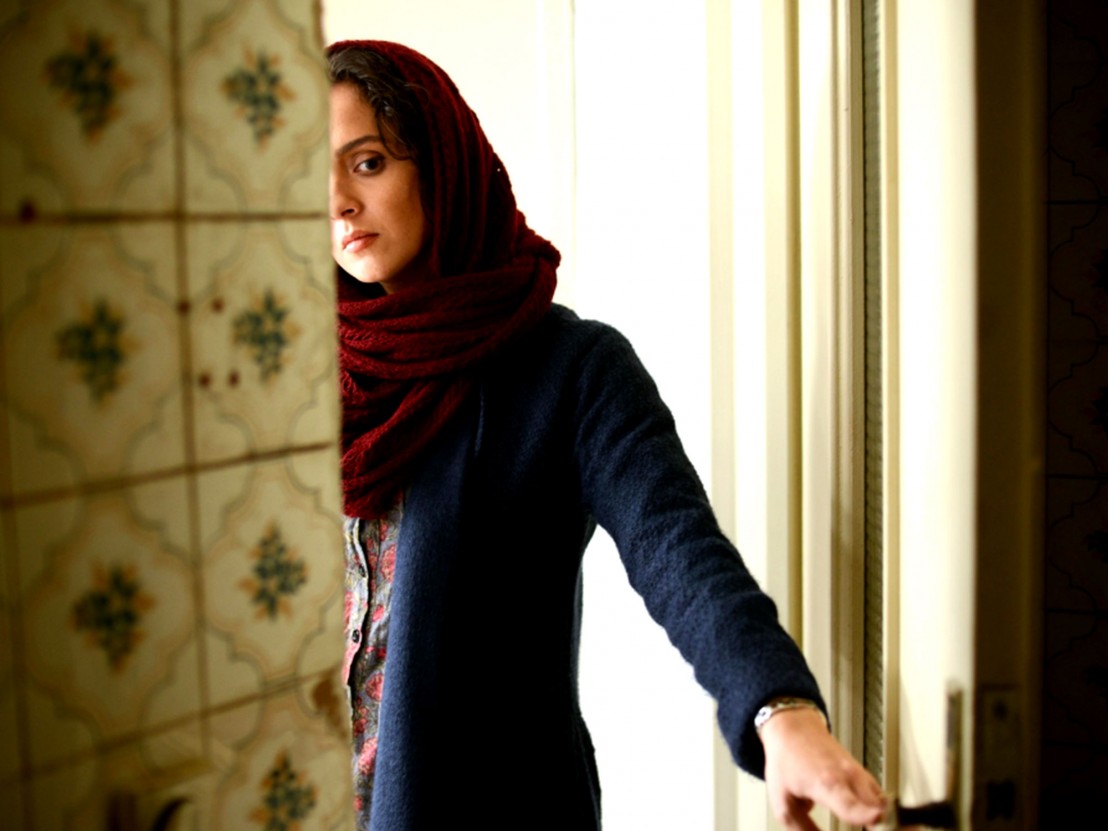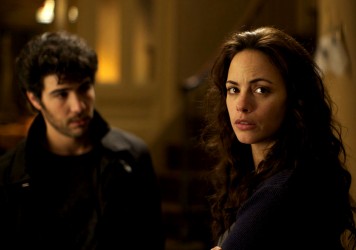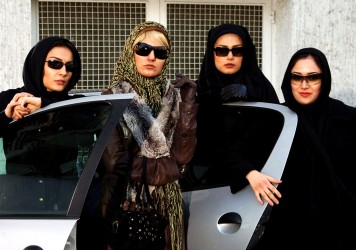
The director of A Separation and The Past heads to the Cannes competition with another intricate domestic drama.
No-one, however liberal or enlightened, is immune to regressive political policies or cultural traditions. Even if you don’t agree with them, society has ways of shackling them to your ankle, insisting that they are addressed and adhered to in some form or another. Living by the dictates of a country means that personal politics are tainted by collective desire. This uncomfortable speculation lingers ominously in the backstage dressing rooms of Asghar Farhadi’s disturbing new feature, The Salesman, which premiers in competition at the 2016 Cannes Film Festival.
The film opens with the somewhat indelicate metaphor of a couple being forced to abandon their apartment when bulldozers accidentally chip away at its foundations and it is deemed unsafe for habitation. Yes, their world is literally falling beneath their feet. During the day, he, Emad (Shahab Hosseini), is a school teacher (of boys only), while at night both he and his wife, Rana (Taraneh Alidoosti), moonlight as theatre actors, currently working on a censored production of Arthur Miller’s Death of a Salesman.
In their moment of dire need, one of their fellow players offers them a new apartment, neglecting to mention that it was once called home by a callgirl whose clients still come knocking. When Rana is alone and taking a shower to remove her theatre warpaint, a communication mishap leads her to accidentally buzz up a person who is not her husband. Farhadi, as he did in his 2011 film, A Separation, uses a ellipsis to hide from the audience exactly what has happened, suppressing a position of narrative advantage and placing us on the same lowly level as the morally bewildered couple.
The first hour of the film is slow going. It’s ponderous and furtive, and never in a particularly compelling way. Farhardi parcels out information and makes you wait to discover its relevance. Yet, more than in previous films, there are elements to this one that want for credibility. Or that Farhardi doesn’t work hard enough to construct a rigorous and believable dramatic context, which in turn undercuts the hysterical melodrama which surfaces in the film’s final act. When you’re dealing with such intricate emotions and attempting to make grand statements from what, in the scheme of things, is a trivial domestic situation, the small details need to be ironclad. If you invite close scrutiny, make sure the numbers add up. Here, they almost do.
It’s tough to understand why Farhardi opted to name his film The Salesman. The connection between the play and the drama playing out in real life seems tacit at most. It’s probably for the best that there is no literal mirroring of the characters and their counterparts, and whatever the writer-director has in mind appears finely-wrought and obliquely symbolic. It is, however, subtle to the point of irrelevance. The only interesting facet about having the characters return to the stage every evening is the irony of them being able to momentarily depart from the anguish of their lives and consume the body and mind of another.
Yet the actors are seen as being physically unable to subdue their their attitudes and ingrained beliefs, and what we mostly see of the play is the moments where the worlds of fiction and reality collide. Perhaps Emad himself feels that he’s simply playing the role of a tolerant, humane gentleman, and that he’s unable to keep the savage, regressive protector from bursting forth at any given opportunity? Violence becomes a right rather than a choice.
Emad’s transformation from compassionate husband to white-eyed avenging angel is made to feel entirely sudden rather than the result of a long-gestating accumulation of woes. The police are removed from the equation early on because it is felt that Rana would automatically be seen as the offending party and dragged through the mud. It’s a shame that Farhardi himself is less interested in exploring why women are unduly sexualised and enfeebled as a matter of course, and retains much of his focus on asking why men feel naturally bound to assume the status of alpha guardians.
Published 22 May 2016

Tahar Rahim and Bérénice Bejo are on top form in this immaculate study of marital disharmony.

By Sarah Jilani
Despite facing severe restrictions Iran’s most important filmmakers continue to give its people a voice.

An all-in Kristen Stewart performance is the lifeblood of Olivier Assayas’ bold, contemporary ghost story.